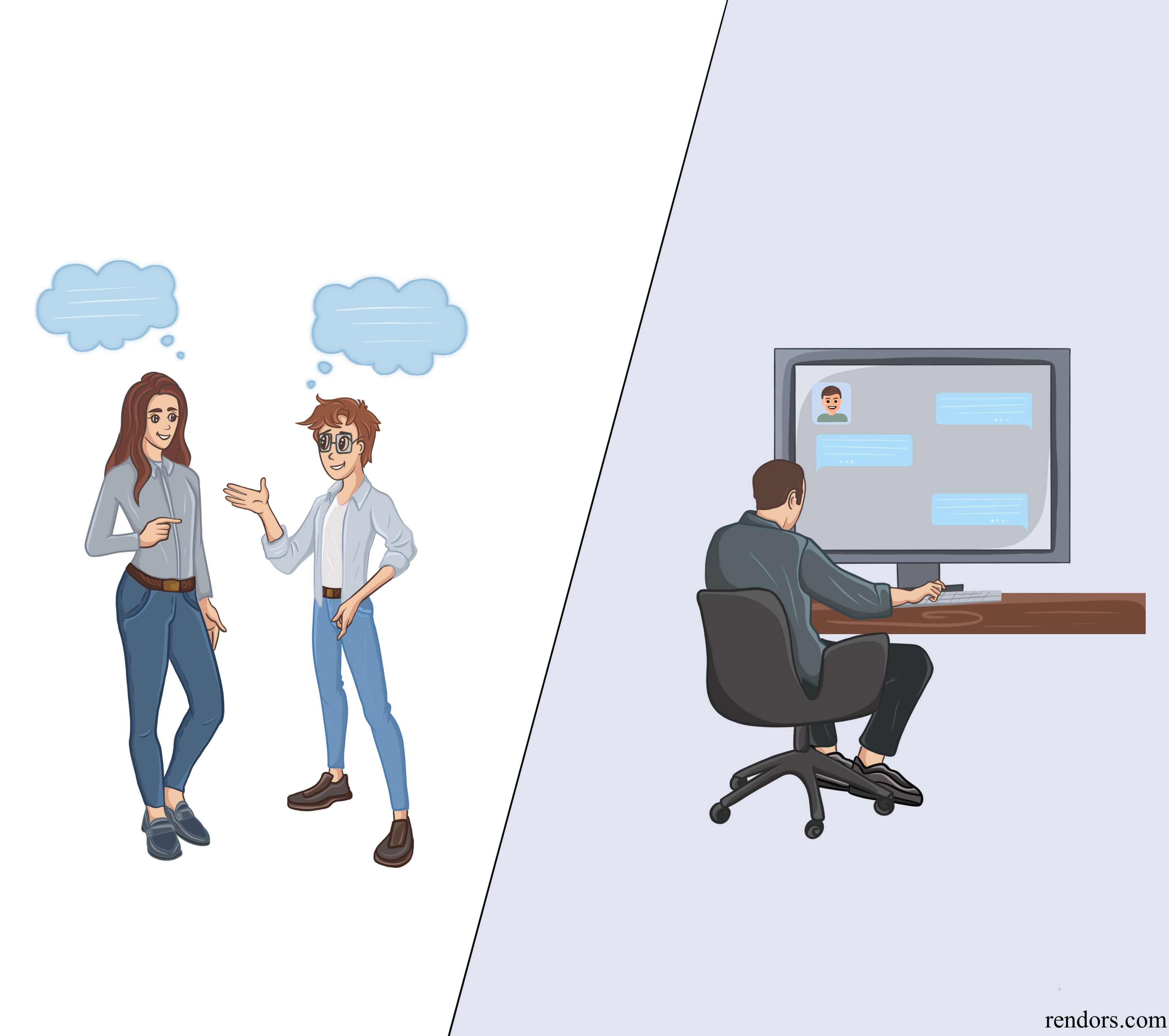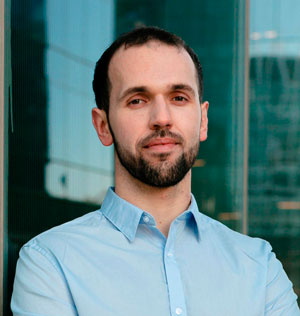Don't see an advisor you admire? Let's add him to the database! - Request

Human Connection in a Digital World. The Problems, the Reasons, and Potential Solutions.
“What I value is the naked contact of a mind.” ― Virginia Woolf
The problem of human connection in a modern digital world
We live in an Omni-connected world, but virtual abundance was served with apparent hollowness. Why do we often feel a lack of genuine connection when everything is just a click away? Why do we make more friends when we are kids than when we are adults? How does this whole connection thing work, and are there any prominent voices out there who can shed some light on these questions? As confusion turned into curiosity, I started binge-thinking and searching for some answers.
The importance of shared commonalities
To make friends, feel connected, and be open to communication, we need to share certain commonalities. There is a substantial body of research to back up this claim. I’ll include the takeaway of the paper by Carolyn Parkinson, Adam M. Kleinbaum & Thalia Wheatley (2018):
These results suggest that we are exceptionally similar to our friends in how we perceive and respond to the world around us, which has implications for interpersonal influence and attraction.
Sharing uncommon commonalities spawns mutual attraction
Nevertheless, some of our similarities matter, while others not so much. If we discover we share something unique, then we have higher chances of forming a real connection.
Turns out, social scientists use the term uncommon commonalities to describe precisely this phenomenon. According to researcher Jerry Burger of Santa Clara University, one of the most effective ways people bond is to discover uncommon commonalities. According to his study, on average, 55% of the time, people were responsive and provided small help to strangers. When the participants were led to believe that there were non-trivial commonalities between them and strangers in need, the number of responsive helpers rose to 82%!
Adam Grant has this to say on the subject:
To explain why uncommon commonalities are so transformative, the psychologist Marilynn Brewer developed an influential theory. On the one hand, we want to fit in: we strive for connection, cohesiveness, community, belonging, inclusion, and affiliation with others. On the other hand, we want to stand out: we search for uniqueness, differentiation, and individuality.
I’d like to use the following Venn diagram to demonstrate the uncommon commonalities:
At its extreme, the most unique commonality is sharing DNA, and no surprise: it represents the strongest bond of all - family.
Clarification - it is about PERCEIVED commonalities and uncommonness
Let’s not be fast to assume that everyone is on the same page when we speak of commonalities or uncommonness. In the context of this post, it is all about perceived commonalities and perceived uncommonness.
If you and I have the same favorite book, then I’d like to chat with you not because of the book itself but because of the qualities of character and intellectual curiosity I would tend to attribute to you in advance. This is the essence of the benefits of similarity - it establishes a sort of a credit line of mutual trust and intellectual attraction.
Every little preference and feature we have is a part of a larger story and a narrative of our lives.
Levels of considering similarities between people:
On which level do we judge our commonalities? Spiritual leaders teach us that we are all fundamentally the same. But day-to-day realities often divide us on petty issues. At the end of the day, it is a matter of how we perceive the world and people around us. If beauty is in the eye of the beholder, then the similarity is in the head of the observer.
The same goes for the attribute of uncommonness. What is old and familiar to one person might be unique and exciting to another. It is easy to overlook that we are very similar in many unique ways to the people around us.
If bonding through commonalities is the key, how come the internet didn't fix everything?
Wait… didn't the internet and social media help to establish millions of unique connections? For example, how about this subreddit:
Do you love the letter G? I mean, really love the letter G? Share your pics of G's in the wild with like-minded enthusiasts. http://www.reddit.com/r/ggggg/
These days everyone with an internet connection can find like-minded people who share their most idiosyncratic features. Why do so many of us struggle to find friends and build real relationships? It is not that the uncommon commonalities idea is fundamentally flawed, but the fact that we are missing another important dimension of looking at the problem. The medium of communication is an essential aspect of consideration here. The power and effectiveness of human connection are greatly diluted as we move from face-to-face to phone calls to text messages to group chats to online forums. This is why companies spend big bucks on guest speaker training for employees and executives instead of just screening pre-recorded videos.
The global pandemic has pushed us to work remotely and stay isolated at home. We've been slowly moving online for decades now. It is difficult to appreciate the changes when they happen slowly. But when you have to suddenly self-isolate and go 100% online for a few months, you notice how things are different.
According to the paper Internet Communication Versus Face-to-face Interaction in Quality of Life, the researchers from the Hong Kong University state the following:
It was found that contrary to our expectation, Internet communication cannot predict quality of life while face-to-face communication with friends and family members can.
In other words, digital communication in itself doesn't contribute much to our well being while face-to-face interaction does. We are diverse and have different needs, but the idea of fulfilling communication and human connection will resonate with everyone in a unique way.
What makes in-person communication unique?
What makes the modern 200 Mbps internet better from the dial-up of the old days? Well… the bandwidth, of course. So is the difference between face-to-face and digital communication.
The bandwidth of in-person communication can be staggering. We may even leave out the words, and the mere silent presence can convey more than hours of calls or thousands of messages.
The problem of underutilization
Do you know those internet plans where you have a monthly data allowance, and if you don't use it, then it all gets wasted? It is like that when we meet people but do small talk or stick to smartphone screens. It is like someone having an ultra-fast unlimited data plan but watching YouTube videos at 240p.
Here is a little example of bringing more meaning and connectedness into our everyday lives:
Why we read what we read is the question that can lead to social bonding. Don’t just say “I love reading” and stop at that. Isn’t it much more delightful and engaging to hear someone say a slightly expanded version like:
The Obstacle?: It takes to be brave, it takes to be vulnerable.
Sharing non-trivial things about yourself may feel uncomfortable for some of us. Expressing observations infused with personal perspectives may be outside of our comfort zones. But being brave (courage) is about how we act while being in a vulnerable position.
Brave - ready to face and endure danger or pain; showing courage. Vulnerable - susceptible to physical or emotional attack or harm. Oxford English Dictionary.
“Vulnerability is the birthplace of love, belonging, joy, courage, empathy, and creativity” — Brene Brown, 2012
Psychology Today summarizes it this way:
Be open to sharing what you feel and taking those risks when your sense of judgment tells you that the risk is well worth it.
The childhood advantage
As we grow up, the circle of our friends usually dwindles. But it is not because kids are simply better at making friends than other age groups. They also struggle (often more so than adults) with fears, insecurities, and anti-social behavior. Psychologists recognize three requirements for making new friends:
- Proximity (this is due to factors like convenience, the mere exposure effect, the chances of actually meeting each other, etc.)
- Repeated, unplanned interactions (like at school, daycare, play dates, extracurricular activities, church, parents’ friends’ kids, etc.)
- A setting that allows or encourages people to open up and confide in each other.
Do you see how adults are at a significant disadvantage here? Kids happen to go to the same local school (or other extracurricular activities), and experience repeated, unplanned interactions in an environment that (ideally) encourages them.
Adults are programmed to keep work and personal matters separate, and due to busy schedules, any meet-ups need to be planned in advance. Everything in between is just getting from point A to point B.
The takeaway
The way we make friends, build connections, and live emotionally fulfilling lives depends greatly on how we engage with the world around us. When we understand the importance of uncommon commonalities, face-to-face interactions, and vulnerability united with courage, we can start acting differently in our day-to-day lives.
Be more present with people who surround you and avoid escaping into the digital abyss. Go beyond small talk and find the courage to show a vulnerable side. Identify and use the repeated, unplanned interactions that occur in your life to build new bonds.
It is not just about making friends, but about working towards bringing more unity and connectedness to our lives.
------------------
As usual, I'd love to hear back from you either in the comments below or at [email protected]

